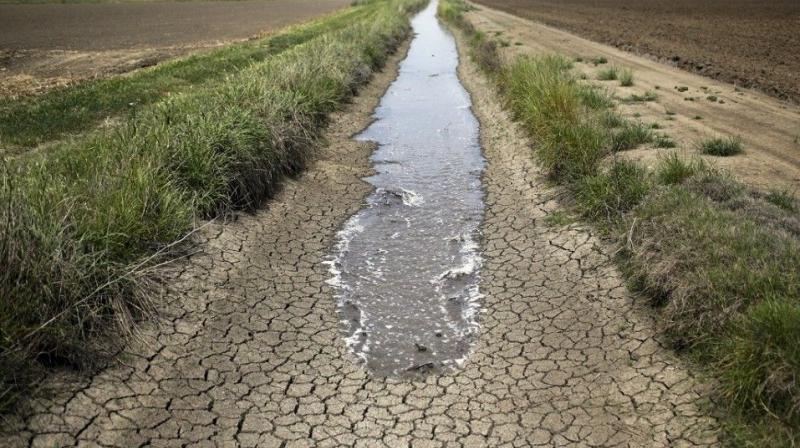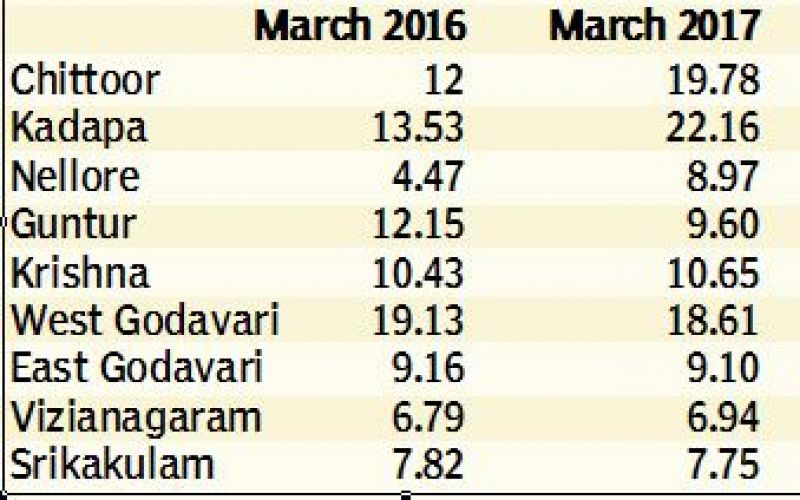Alarming decline in AP groundwater level
The fall in groundwater is also resulting in high concentration of minerals in potable water.

Visakhapatnam: An observation of fluctuation in groundwater level over a decade from 2006 in AP has revealed an alarming situation, with 56 per cent of 547 wells analysed recording a drastic dip.
In its analysis, the Central Ground Water Board (CGWB) found that groundwater in coastal Andhra Region has dipped to an average of 11.35 m, while Rayalaseema region shows 19.65 m, according to the latest groundwater report given on CM dashboard on Friday.
The decline in groundwater level is attributed to increase in the use of groundwater for meeting demands, and deficient and erratic rainfall in the previous years.
Andhra University Geophysics Professor M.R.S. Sampath Kumar said decreasing rainfall and increasing temperature in the state would be the main reason behind the water table depletion, besides indiscriminate pumping of groundwater for various purposes.
He also pointed out evapo-transpiration, which is the sum of evaporation and plant transpiration from the earth’s land and ocean surface to the atmosphere. “The increase in temperature accelerates the evapo-transpiration process and results in depletion of water table,” he said.
 Metres below ground water level in mm
Metres below ground water level in mm
He, however, hoped that the river-linking project would largely improve the groundwater level in various areas of the state by helping people not to depend on the mere groundwater for agriculture and other purposes.
Deputy director of AP Groundwater Depart-ment K.S. Sastry said there was not good spell of rains in October and November in 2016, which forced the farmers to pump out more groundwater level.
“The dependency on groundwater would have to be brought down in order to check the declining water-level and also sort out drinking water crisis. People are not taking the rainwater harvesting practice seriously when there was a good monsoon. Recharge pits are necessary when the cities are turning into concrete jungle,” said Mr Sastry.

